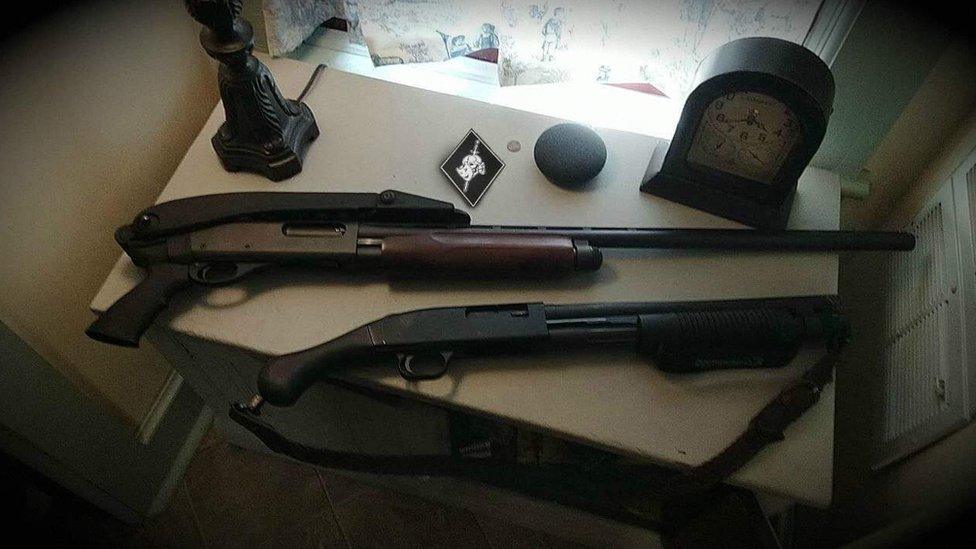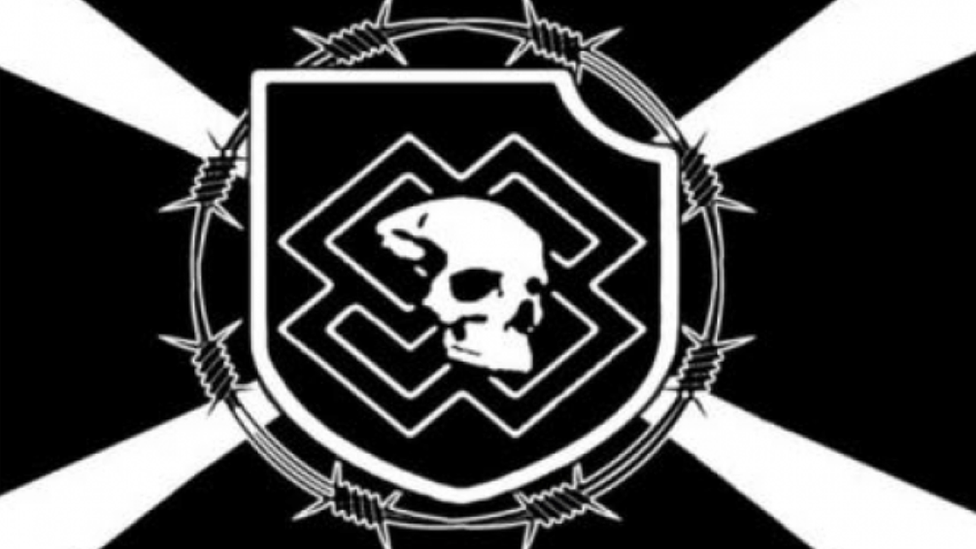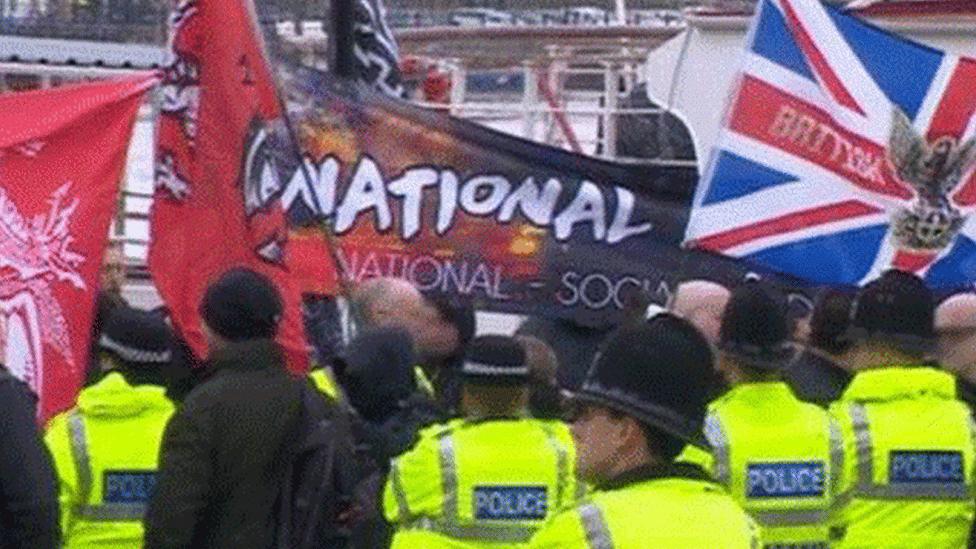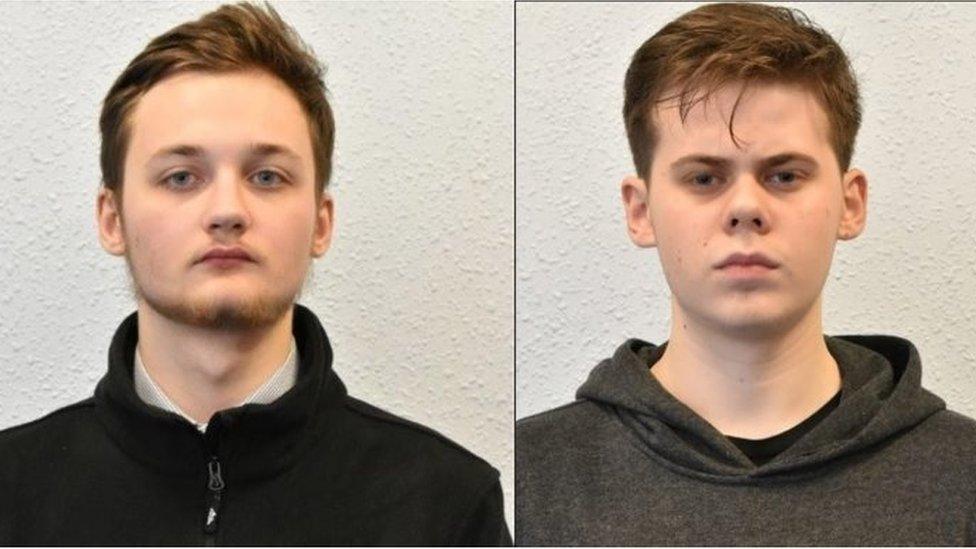Neo-Nazi group led by 13-year-old boy to be banned
- Published

Weapons belonging to one member of the Feuerkrieg Division
A neo-Nazi group that was led by a 13-year-old boy from Estonia should be banned as a terrorist organisation, the UK government has announced.
Feuerkrieg Division, an international group that largely existed online, said earlier this year it had dissolved.
But Home Secretary Priti Patel has now asked Parliament for permission to outlaw it in the UK.
This would make it a criminal offence to be a member of or invite support for the group.
Ms Patel said: "This vile white supremacist group advocates violence and seeks to sow division, targeting young and vulnerable people online."
A Home Office statement said the organisation advocated the "use of violence and mass murder in pursuit of an apocalyptic race war".
The statement added that, in retaliation for the arrest of one of its British followers last year, the group distributed a list of police buildings and an image of a senior police officer with a gun to his head and the words "race traitor" across his eyes, urging followers to carry out attacks.
FKD was created in late 2018 and sought recruits online, particularly through its channels on encrypted messaging applications.
The group's ideology promoted the idea that society will collapse into racial warfare - thus opening the way for the creation of a neo-Nazi state - and that this process should be accelerated through terrorist activity.
National Action and Sonnenkrieg Division - both created in the UK - are the only neo-Nazi groups to have previously been added to the government's list of proscribed terrorist organisations, which has over 80 entries.
Campaigners at Hope not Hate welcomed the proposed ban of FKD, but said the government was "behind the curve" and that the "move to proscription fits the existing pattern of diminishing or defunct groups being banned long after their threat has passed."

A Feuerkrieg Division logo
Applicants for FKD membership were required to put up propaganda posters in their local area and send photos to the leader.
The boy, who used the alias Commander, was identified this year by the Estonian Internal Security Service, which has said that under its legal system "young children can't be legally held responsible for crimes" and therefore "these cases have to be treated by other legal means to protect the child from himself and also protect everybody else from a suspected threat".
People linked to the group are the subject of court cases around the world.
There are three ongoing counter-terrorism prosecutions in the UK connected to FKD.
In February, an American member - who had discussed setting fire to a Las Vegas synagogue - admitted a firearms offence following a counter-terrorism investigation.
During the same month, a US soldier linked to the group pleaded guilty to distributing information related to explosives, destructive devices and weapons of mass destruction.
In Lithuania, an alleged teenage member is charged with leaving a bomb - which failed to explode - outside an office in its capital city last year. Police said he was found in possession of bomb-making materials and an improvised firearm.
- Published12 December 2016

- Published24 February 2020
